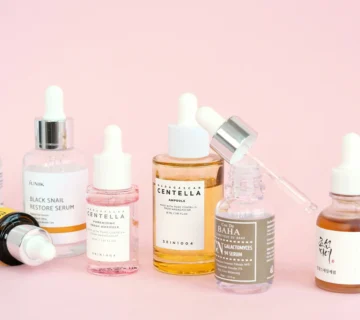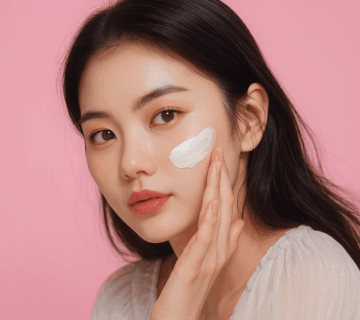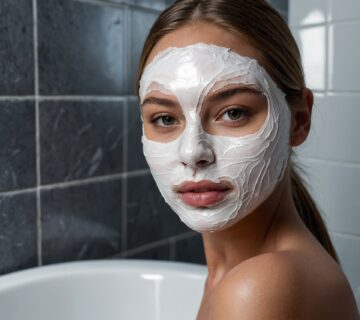Pregnancy Safe Skincare A Time of Change, Also for Your Skin
Pregnancy is a tender, powerful season; your body blossoms with life, and with it come changes not just within, but on the outside too. Hormones shift, moods fluctuate, and your skin may suddenly feel unfamiliar. It’s common to experience increased sensitivity, unexpected breakouts, or pigmentation patches like melasma.
But here’s the good news: with the right skincare, you can feel more radiant and comfortable in your skin throughout every stage. A gentle, thoughtful routine can help you glow with confidence, inside and out. Pregnancy is a beautiful journey, but it also brings major hormonal shifts that can affect your skin. From sudden acne flare-ups and dryness to pigmentation and sensitivity, your complexion may behave in new and unexpected ways.
As your body works overtime, so should your skincare routine, safely and gently.
What Happens to Skin During Pregnancy?
- Melasma (pregnancy mask): Dark patches appear on cheeks, forehead, or upper lip.
- Increased sensitivity: Your usual products may sting or cause redness.
- Breakouts: Hormonal surges can lead to acne, even in women who never had it before.
- Dryness & itchiness: Common due to stretching skin and moisture loss.
Understanding these changes helps you choose ingredients that support not stress your skin.
Bonus Tip: If you’re concerned about stretch marks, look for fragrance-free moisturisers that include shea butter, centella asiatica (cica), or vitamin E. While no cream can guarantee prevention, consistent hydration supports your skin’s elasticity.
Ingredients to Avoid During Pregnancy
Some skincare ingredients can be harmful to your developing baby or increase skin sensitivity:
- Retinoids/Retinol (vitamin A): Linked to birth defects, strictly avoid.
- High-dose salicylic acid (>2%): Can pose fetal risk, limit to spot treatments only.
- Hydroquinone: Highly absorbent and potentially unsafe.
- Essential oils (e.g., rosemary, sage): Can disrupt hormones or stimulate contractions.
- Parabens, phthalates, formaldehyde releasers: Potential endocrine disruptors, better safe than sorry.
Safe and Effective Skincare Ingredients
Note: Many pregnant women become more sensitive to smells. Choosing fragrance-free or low-scent products can reduce irritation and nausea.
These ingredients are widely considered safe by dermatologists and OB-GYNs:
- Vitamin C: Brightens, fades pigmentation, protects skin.
- Bakuchiol: Plant-based retinol alternative gentle but effective.
- Azelaic acid: Great for acne, rosacea, and discoloration.
- Niacinamide: Calms redness, balances oil, supports elasticity.
- Hyaluronic acid: Deep hydration without irritation.
- Peptides & Ceramides: Strengthen your skin barrier.
- Glycolic & Lactic Acids (low dose <10%): Light exfoliation without harshness.
- Mineral sunscreens (zinc oxide, titanium dioxide): Essential to protect against melasma.
Top Pregnancy-Safe Products (Dermatologist Approved)
| Product Type | Recommendation | Brand Examples |
|---|---|---|
| Cleanser | Gentle, fragrance-free | CeraVe Hydrating, Vanicream Gentle Cleanser |
| Hydrator | Hyaluronic acid serum | The Ordinary, Neutrogena Hydro Boost |
| Moisturizer | Ceramide-based cream | CeraVe Moisturizing Cream, La Roche-Posay Lipikar |
| Brightener | Vitamin C serum | La Roche-Posay 10% VC, SkinCeuticals CE Ferulic |
| Anti-aging | Bakuchiol or peptides | Herbivore Bakuchiol, Medik8 Bakuchiol Peptides |
| Acne Support | Azelaic acid | Paula’s Choice 10%, The Ordinary 10% |
| Sunscreen | Mineral SPF | EltaMD UV Pure, Blue Lizard, Cotz Baby |
FAQ: Pregnancy and Skincare
You may need to adjust it. Some previously safe products may now cause irritation or aren’t recommended during pregnancy.
Stick to mineral sunscreen daily, and use vitamin C or azelaic acid to gently fade discoloration.
Not necessarily. Some essential oils and herbal extracts can be harmful during pregnancy. Stick to verified safe ingredients.
Retinoids are typically safe to restart during breastfeeding only with medical approval. Wait until after delivery and consult your doctor.
Melasma is very common during pregnancy due to hormonal changes. While it often fades after birth, you can manage it safely by using daily mineral sunscreen, avoiding direct sun exposure, and applying gentle brightening agents like vitamin C or azelaic acid. Avoid harsh peels, retinoids, or hydroquinone until after pregnancy.
Many Korean skincare products are gentle, hydrating, and packed with natural ingredients, making them a great choice during pregnancy. However, always check for retinol, strong acids, or essential oils that may be unsafe. Stick to products labeled “pregnancy-safe” and consult your doctor if unsure
✨ Caring for Yourself Means Caring for Your Skin
Your pregnancy journey deserves products that are gentle, safe, and effective. With so many dermatologist-backed, pregnancy-safe skincare options, you don’t have to choose between beauty and well-being.
💡 Important Tip for Pregnant Women:
Daily use of mineral sunscreen can significantly reduce the appearance of pregnancy-related facial pigmentation (melasma). Even on cloudy days or indoors, consistent SPF protection helps maintain even skin tone and prevents dark spots from worsening.
Example: Beauty of Joseon – Relief Sun: Rice + Probiotics SPF50+ is a lightweight, fragrance-free mineral sunscreen, highly regarded for its soothing properties and suitable for sensitive or pregnancy-prone skin. It is one of the most effective ways to prevent and reduce pregnancy-related pigmentation (melasma). Even if you’re indoors or it’s cloudy, consistent SPF protection helps preserve your skin tone and keeps discoloration from deepening.
🌿 Visit USA Skincare to explore gentle Korean skincare solutions formulated for every stage of life, including motherhood.
👉 Follow us for expert skincare guides and new mom tips
Follow us on Instagram @mirai_skincaree for real tips, gentle routines, and behind-the-scenes favorites from our curated Korean skincare collection.
⚠️ A Note on Individual Differences
This article was written following professional research and expert input, including sources such as the American College of Obstetricians and Gynecologists (ACOG) and board-certified dermatologists (Read more at ACOG).
However, every pregnancy is unique, and so is your skin. Always consult with your dermatologist or healthcare provider before introducing new skincare products, especially if you’re unfamiliar with their ingredients or have sensitive skin.





